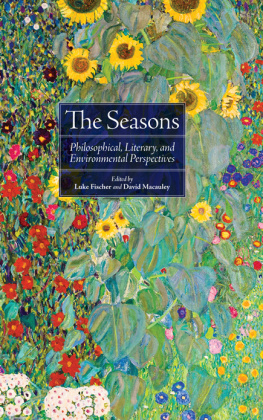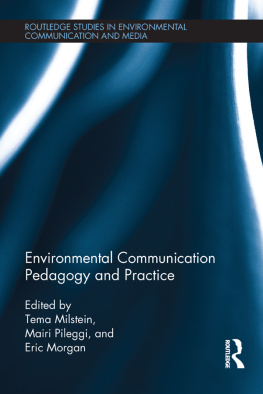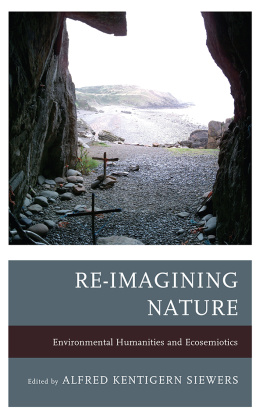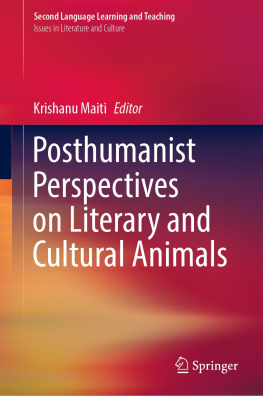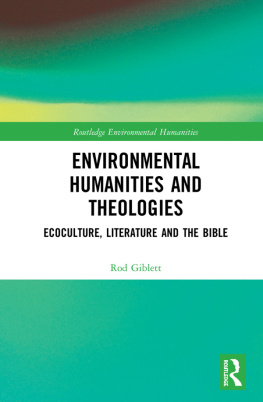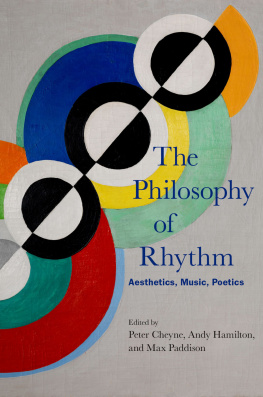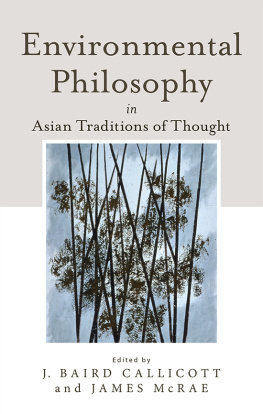THE SEASONS
THE SEASONS
Philosophical, Literary,
and Environmental Perspectives
Edited by
LUKE FISCHER and DAVID MACAULEY
Published by State University of New York Press, Albany
2021 State University of New York
All rights reserved
Printed in the United States of America
No part of this book may be used or reproduced in any manner whatsoever without written permission. No part of this book may be stored in a retrieval system or transmitted in any form or by any means including electronic, electrostatic, magnetic tape, mechanical, photocopying, recording, or otherwise without the prior permission in writing of the publisher.
For information, contact State University of New York Press, Albany, NY
www.sunypress.edu
Library of Congress Cataloging-in-Publication Data
Names: Fischer, Luke, editor. | Macauley, David, editor.
Title: The seasons : philosophical, literary, and environmental perspectives / Luke Fischer and David Macauley.
Description: Albany : State University of New York, [2021] | Includes bibliographical references and index.
Identifiers: LCCN 2021009169 (print) | LCCN 2021009170 (ebook) | ISBN 9781438484259 (hardcover : alk. paper) | ISBN 9781438484266 (ebook)
Subjects: LCSH: Human ecology and the humanities. | Seasons.
Classification: LCC GF22 .S43 2021 (print) | LCC GF22 (ebook) | DDC 304.2/5dc23
LC record available at https://lccn.loc.gov/2021009169
LC ebook record available at https://lccn.loc.gov/2021009170
10 9 8 7 6 5 4 3 2 1
Contents
Luke Fischer and David Macauley
David Macauley
Craig Holdrege
Luke Fischer
Paola-Ludovika Coriando
John Charles Ryan
Alphonso Lingis
Joseph Ballan
Jo Law
Yvonne Frster
Rod Giblett
Tom Bristow
Illustrations
Acknowledgments
David Macauley would like to thank Penn State University, Brandywine for support during work on this book. He received valuable assistance and intellectual friendship from Troy Paddock, Luke Fischer, Eric Orts, Richard Odabashian, and Howard Macauley. He would also like to acknowledge the constructive responses he received after presenting talks to the Renaissance Society at the University of Chicago, the Geo-aesthetics Society at Towson University in Maryland, the Becoming-Elemental Conference at Concordia University in Montreal, and the International Association for Environmental Philosophy in Philadelphia.
Luke Fischer would like to thank David Macauley for first suggesting that we co-edit a volume on the topic of the seasons. This idea came about after he (Luke) presented a paper on the seasons at the Geo-Aesthetics in the Anthropocene conference at the University of Maryland in 2010. At the time David was completing his book Elemental Philosophy, and there were significant points of interconnection between our respective research. In 2011 David Macauley, Craig Holdrege, and Luke Fischer presented a panel on the seasons (moderated by James Hatley) at the International Association of Environmental Philosophy conference. The presentations at these two conferences, as well as more recent exchanges with a number of scholars, have sparked valuable conversations for which he is grateful. He would also like to thank Jeffrey Hipolito and Dalia Nassar for their feedback and interest in this project.
We would both like to thank the academic journals Transformations ( first appeared in Environment, Space, Place 10, no. 2 (Fall 2018).
We would like to thank Andrew Kenyon and Michael Rinella at SUNY Press in particular for their assistance, encouragement, and patience in seeing this book through to its completion. We would also like to thank the production editor, Ryan Morris, and the copy editor, Heather Grennan Gary. Finally, we extend our appreciation to the contributors to this volume and to the reviewers of a draft of the manuscript.
Introduction
Thinking through the Seasons
L UKE F ISCHER AND D AVID M ACAULEY
No one, to my knowledge, has observed the minute differences in the seasons A book of the seasons, each page of which should be written in its own season and out-of-doors, or in its own locality wherever it may be.
Henry David Thoreau, Journal, June 11, 1851
The Role and Relevance of the Seasons
We are living in a time in which we are likely more alienated from seasonal rhythms than in any other period of history. During long winter nights, we switch on electric lights and thus, as it were, artificially extend the day. Through indoor heating and air-conditioning, we sequester ourselves from the bitter cold of winter or the oppressive heat of summer. Modern technology enables us to control the temperature of our homes, shops, public buildings, and transport vehicles. This seeming ability to separate ourselves from the environing atmosphere is, in a deeper sense, a dangerous illusion. The fluorocarbons used in air-conditioning, for instance, are released into the environment and in turn contribute to global climate change. Ironically, when we cool ourselves in this manner we promote the further warming of the atmosphere. Of course, humans have always sought ways to cool their dwellings in summer and warm them in winter. Gas heating, for example, has replaced the hearth. The shady courtyards and fountains of Arabic architecture were actually very effective in providing cool sanctuaries in the summer. But these earlier forms of temperature regulation involved a closer connection to the elementswood, fire, water, and the courtyards exposure to the outdoorsthan those of modern technology.
Our apparent ability to detach ourselves from the climatethrough the production of artificial micro-climatesis emblematic of wider problems connected with Western subjectivity and the unfolding ecological crisis. Through the assumptions of modern philosophy and the growth imperatives of our economic systems, we have thought and acted as though we human beings can exist separately from the natural world. Nature has been conceived as a realm that is radically divided from human experience and self-consciousness, and humans have treated the environment as a mere resource for industry and the manufacture of commodities. In the current era of the Anthropocene, we areall too slowlybecoming aware that human life is dependent on and interdependent with the earths dynamic, interconnected, and fragile ecosystems; that our exploitation of natural resources is unsustainable; and that human activity is adversely affecting the entire biosphere.
In the context of our modern global economy, we can shop at supermarkets where mangoes and strawberriestransported from thousands of miles awayare available on the shelves in the middle of winter. Whereas many small-scale and organic farmers continue to collaborate with seasonal cycles and there are environmental limits to what can be grown in a particular region at particular time of year, most of us now reside in cities and large towns where we are typically disconnected from the rhythms of agrarian life. Moreover, industrial agriculture is largely mediated by modern technologies and the capitalist economy; short-term yields and the maximization of profits are prioritized, rather than a sustainable collaboration with natural cycles.
Reflecting on these issues, environmentalist Bill McKibben opines, The seasons dont matter to most of us anymore except as spectacles. In my county and in many places around this part of the nation, the fair that once marked the harvest now takes place in late August, while tourist dollars are still in heavy circulation. He asks rhetorically, Why celebrate the harvest when you harvest every week with a shopping cart?

